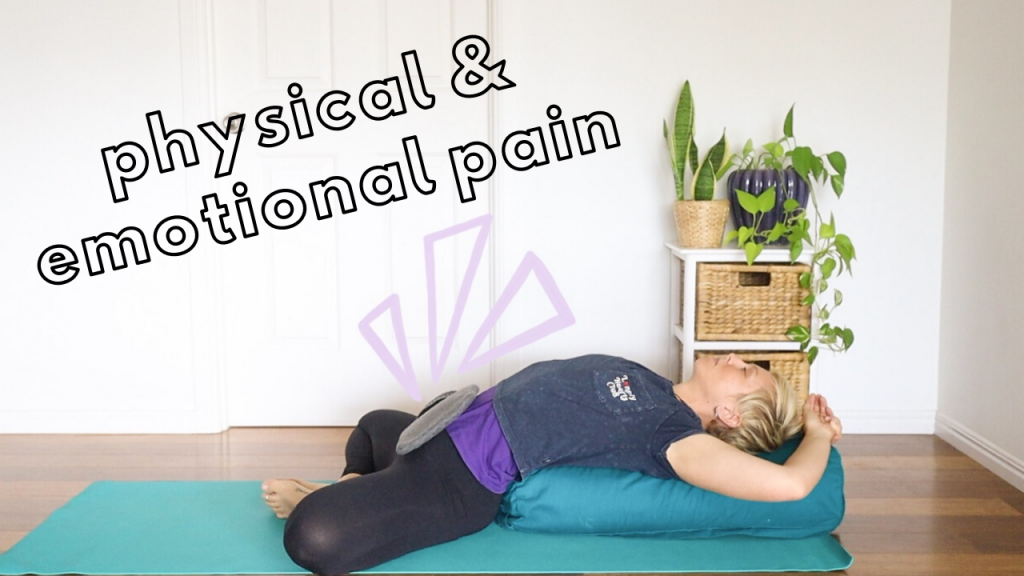Do painful periods affect fertility? What your body is trying to tell you
Have you been wondering if your painful periods affect fertility? Painful periods can be a sign that your body is out of balance and needs support. Let’s talk about what your body might be trying to tell you.
Pain in the body is usually a sign that something is not physically, mentally or emotionally right. It could be your body asking for more movement or nutrients, or for you to find a way to release emotions and trauma that is stuck in your body.

Common reasons for painful periods that will affect your fertility
Hormonal imbalance
Our hormones govern our menstrual cycle (and most of our other bodily functions as well). When our hormones are out of balance, the symptoms we experience around our cycle are often exaggerated (including period cramping.) Unbalanced hormones also affect your fertility, because conception requires a delicate balance of hormones at exactly the right time for ovulation and successful implantation to occur.
There are a number of factors that can cause hormonal imbalance including stress, nutritional deficiencies, being under or overweight, external toxins, etc. If you suspect your hormones are out of balance reducing stress, eating a whole food diet and reducing external toxins in your skincare and cleaning products can go a long way to help restore balance in your body. (If you’d like to read about when my hormones were whack – you can here.)
If you would like to practice a yoga class that is suitable during painful periods, please scroll to the bottom of this post. If you’re looking for more fertility yoga you can download my free guide here.
Some conditions that cause painful periods affect fertility and may be worth looking into further if lifestyle changes don’t ease your period pain.
Endometriosis
Endometriosis is an chronic inflammatory condition where tissue similar to the lining of the uterus grows elsewhere in the body. It most commonly grows in the ovaries, fallopian tubes, bowels and the areas around the uterus. This tissue reacts hormonally to the changes throughout the menstrual cycle, often worsening the usual symptoms around ovulation and menstruation. Many women with endometriosis experience severe period pain and commonly have difficulty conceiving.
Endometriosis is believed to be triggered by excess oestrogen and inflammation in the body and an immune response that is unable to destroy the excess tissue outside the uterus. Unfortunately our modern lifestyles (poor nutrition, lack of movement, environmental toxins and long term stress) fuel both excess oestrogen and inflammation leading to higher rates of menstrual conditions like endometriosis and infertility.
Endometriosis is often treated surgically by removing the endometrial tissue, although this does not cure the condition and many women find there symptoms return with time. Lifestyle changes that reduce inflammation and help to balance hormones are needed to ease symptoms long term. Floliving has more in depth information about the nutrition and supplements to support these changes.
Can Yoga help?
For women with endometriosis, yoga can help reduce hormonal imbalance, reduce stress (which allows the body to restore immune function and reduce inflammation) and have the mental space to make better lifestyle choices to support their condition.
Additionally yoga allows us to address the emotional aspects of endometriosis (and other menstrual conditions as well). It can be beneficial for women to consider their feelings about their own bodies, past or recent trauma, and even the way they meet the needs of others (which is often to the detriment of their own.)
Adenomyosis
In Adenomyosis endometrial tissue grows into the walls of the uterus. The cause is currently unknown. Women who have had uterine surgery and or those who’ve already had children may also be at a higher risk for adenomyosis. Various hormonal imbalances including oestrogen, progesterone, prolactin, and follicle stimulating hormone are thought to trigger the condition. Adenomyosis requires oestrogen and therefore often goes away after menopause.
Adenomyosis is commonly treated with anti-inflammatory drugs, hormonal therapy or surgical options. The only known cure is currently hysterectomy which is only performed for women who’ve significant symptoms and have completed their families.
Can Yoga help?
Many women who have adenomyosis also have endometriosis and it is unknown which condition causes infertility. Therefore yoga for this condition is the same as endometriosis.
Uterine Fibroids
Uterine fibroids may also be the cause painful periods. They are non-cancerous growths in the wall of the uterus that often appear during childbearing years.
The exact cause of uterine fibroids is unknown however they are believed to be related to hormonal imbalances (specifically an excess of oestrogen). It’s also believed that some women are predisposed to fibroids due to family history, race and lifestyle choices
A common treatment for fibroids is the birth control pill, however this only masks the symptoms and doesn’t treat the cause. Surgery may also be offered but this procedure is invasive and can cause scar tissue which may impact future pregnancies. As with many of the conditions that create hormonal imbalance, lifestyle choices to reduce inflammation and reduce excess oestrogen have been shown to help. Eg. limiting dairy, reducing processed food, balancing blood sugar, limiting caffeine, alcohol and other toxins.
Can Yoga help?
Generally yoga will help uterine fibroids by helping to balance the hormones of the body. On an emotional level fibroids are related to the energy of the sacral chakra. The sacral chakra may be blocked due to past issues or unresolved conflicts relating to sexuality, relationships or creativity. Sometimes these emotional energies manifest in physical symptoms in this area – eg. endometriosis, cysts, PCOS.
If you’re currently experiencing painful periods, the class below is for you. I’d also recommend looking a little further into your pain to help discover what is causing it. Your GP, naturopath or gynaecologist can help you to do this. If you’d like to practice more fertility yoga with me to help balance your hormones and ease symptoms, start with my free fertility yoga guide.
